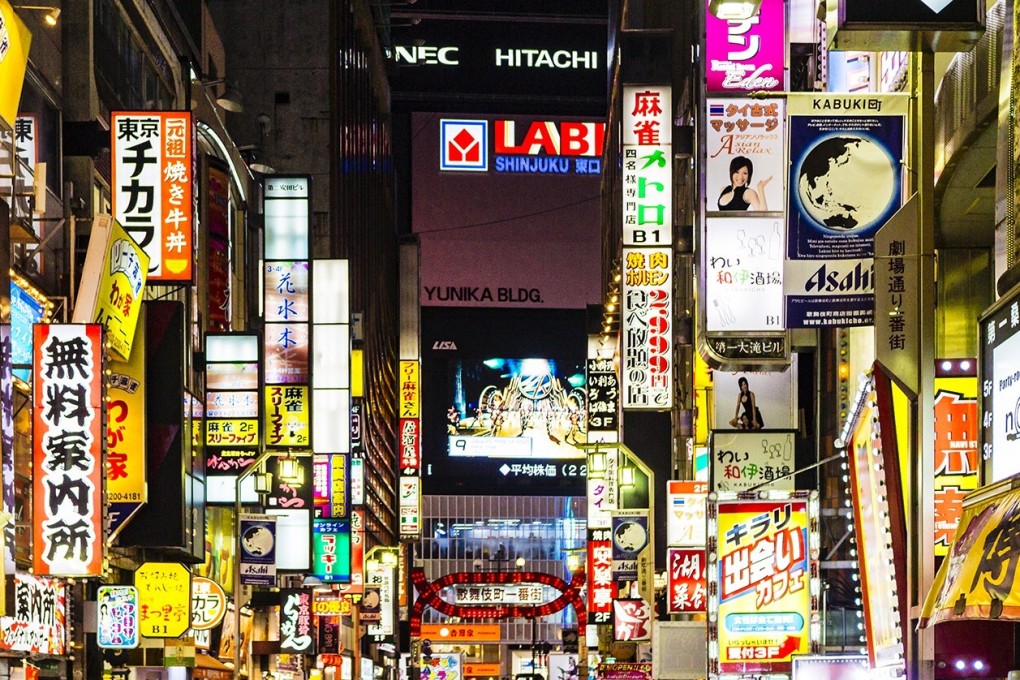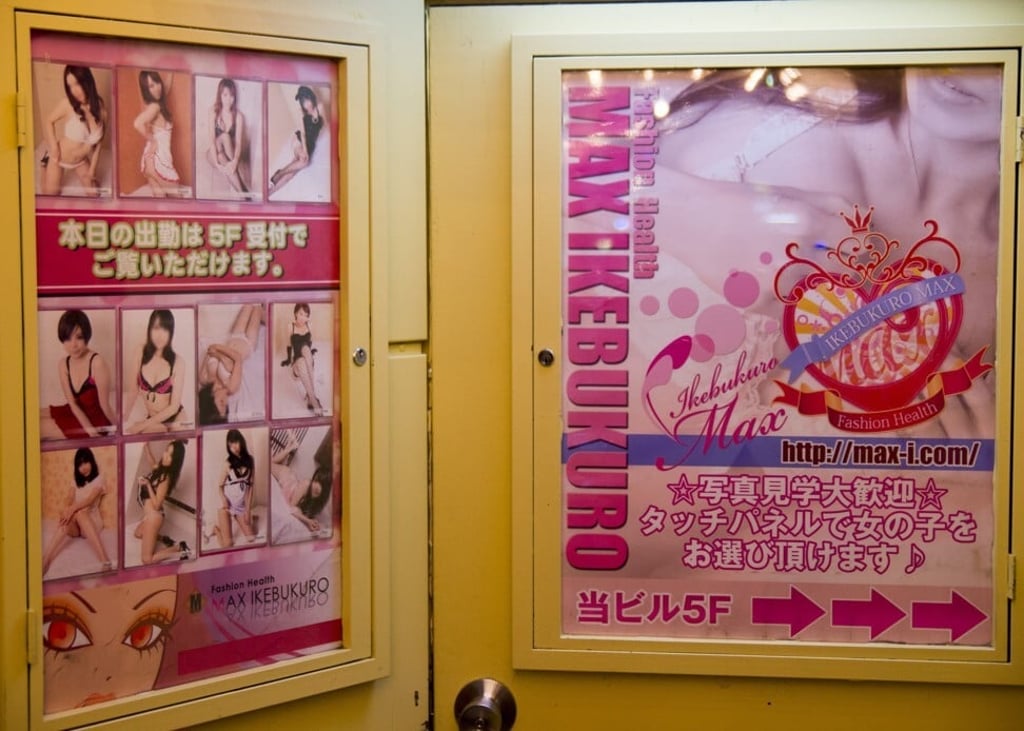Japan’s sex industry stays open amid pandemic as workers and business owners weigh health with income
- Despite requests to close, places like oral sex bars and S&M clubs remain open in Japan with sometimes little more than cursory hygiene measures in place
- Dating apps are also more active, with users on apps like Tinder and Grindr reporting many more people on the search for hookups

Since Japanese Prime Minister Shinzo Abe announced an official state of emergency over the coronavirus pandemic on April 7, the nation’s major cities have been in the eye of the storm.
In Tokyo, major department stores have closed down, nightlife venues are facing dire times and many restaurants are offering “bento” takeaway lunchboxes as alternatives to drinking and snacking at after-work izakaya bars.
But what does that mean for the country’s ever-thriving adult services industry?
In Tokyo, the adult entertainment industry is very much built around immediate, face-to-face convenience. Stressed salarymen can pop into a hostess club to chat with a young woman – for a fee – or rent a 40-minute booth in a pinsaro, or oral sex bar, for around 6,000 yen (US$55).

Unlike other countries where stricter measures have been enforced, the Japanese government has requested, not told, many businesses to close. This has left sex workers and adult-industry business owners in a “grey zone”: do they stay open and try to maintain clients while risking their health? Or shut entirely and face losses?
“We’ve been making sure patrons wash and sanitise their hands and clothes before entering the venue,” says Britney Jane, an American in her 20s who has lived in Japan for five years and works at an S&M club in Osaka.